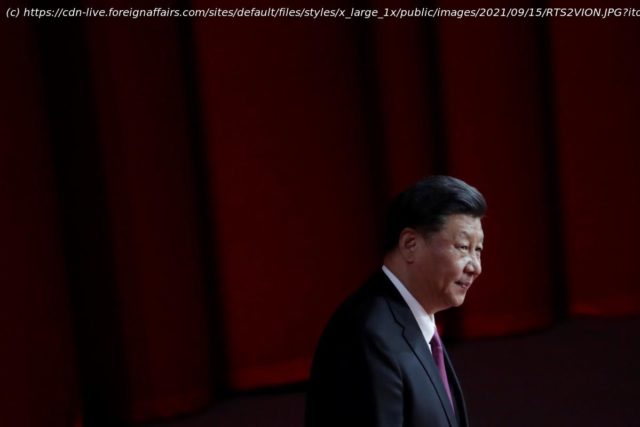Beijing’s money and technology is fueling repression worldwide.
In a speech to senior Chinese Communist Party (CCP) officials in July, Chinese leader Xi Jinping declared that China must do more to share the “story” of the party’s success with the rest of the world. In order to enhance the international influence of both the country and the party, Xi effectively asserted, Chinese officials should extol the virtues of China’s model of authoritarian governance abroad. Although some analysts continue to argue that China does not pose an ideological threat to prevailing democratic norms and that the CCP does not export its ideology, it is clear that the CCP has embarked on a drive to promote its style of authoritarianism to illiberal actors around the world. Its goal is not to spread Marxism or to undermine individual democracies but rather to achieve political and economic preeminence, and its efforts to that effect—spreading propaganda, expanding information operations, consolidating economic influence, and meddling in foreign political systems—are hollowing out democratic institutions and norms within and between countries. To respond to Beijing’s ideological challenge, advocates of democracy must have a better understanding of what China aims to achieve by exporting its political model and how its actions are weakening democracy globally. Only then can they effectively design policies that will reinvigorate democracy at home and abroad while selectively seeking to counter Beijing’s promotion of authoritarian governance. Beijing seeks less to impose a Marxist-Leninist ideology on foreign societies than to legitimate and promote its own authoritarian system. The CCP does not seek ideological conformity but rather power, security, and global influence for China and for itself. To this end, the party has issued stark declarations of confidence in its own ideology and in the country’s antidemocratic political path. Xi has made clear that he regards China’s illiberal model of governance as superior to so-called Western political systems and that he seeks to popularize this “Chinese wisdom” throughout the world as a “contribution to mankind.” Xi and other Chinese leaders frequently portray China’s economic success as proof that the road to prosperity no longer runs through liberal democracy. As Xi put it at the 19th Party Congress in 2017, China’s model offers “a new option for other countries and nations who want to speed up their development while preserving their independence”—while ignoring external pressure to democratize. This message is highly attractive to leaders who hope to achieve economic success without answering to the demands of their people. Chinese officials now commonly speak of the “right” of nations to choose their political systems, be they democratic or authoritarian—and the arrogance of countries such as the United States that assume that democracy is the preferable option. Advocating the right of countries to be ruled by nondemocratic regimes is clearly different from forcibly installing autocratic leaders around the world, as the Soviet Union did during the Cold War. But the CCP’s increasingly full-throated promotion of authoritarianism as a superior governance model presents no less of a challenge to democracy than did Soviet interference, particularly when paired with China’s economic and political measures that bolster authoritarian regimes and weaken democratic ones around the world. China’s international efforts to subvert democracy fall into three broad categories. The first includes its attempts to shape the narrative about China in developed countries. In nations ranging from Canada and Germany to Australia and Japan, Beijing aims to silence critics of China and amplify the voices of individuals and institutions that promote closer ties with Beijing or a more positive portrayal of China. Beijing wields both threats and inducements to this end, rewarding positive portrayals and punishing criticism. As the Chinese ambassador to Sweden admitted in 2019, “We treat our friends with fine wine, but for our enemies we have shotguns.” China offers preferential market access to friendly governments, academic institutions, and businesses but retaliates financially against those it sees as hostile to China’s interests. It also threatens Chinese dissidents and their families, monitors Chinese students abroad, attempts to silence academic discourse deemed offensive to Beijing, and seeks to control how foreigners are educated about China. Beijing has also sought to expand its foreign media footprint, control Chinese-language media abroad, and turn Chinese diaspora citizens against parties or candidates it deems threatening to its interests. Taken together, these actions form a comprehensive strategy to inform, shape, and ultimately control perceptions of China throughout the world. The second category of antidemocratic actions are those that take place in developing countries. Unlike in the developed world, where China’s political and economic coercion and “Wolf Warrior” diplomacy have engendered a growing backlash, Beijing has received a warmer welcome in many developing countries, where elites hope to learn from a political system that has enabled China’s transformation into the world’s second-largest economy.






